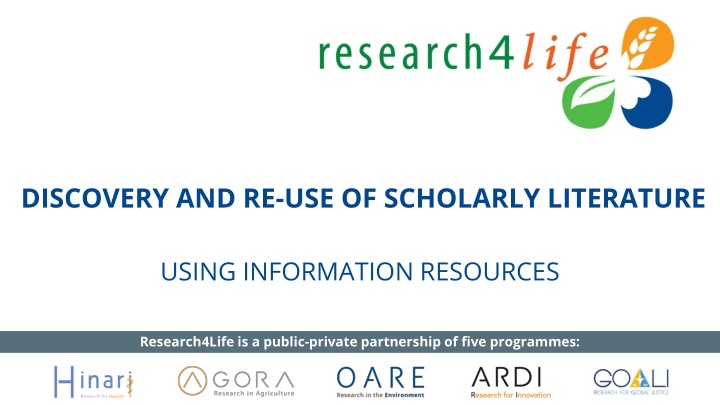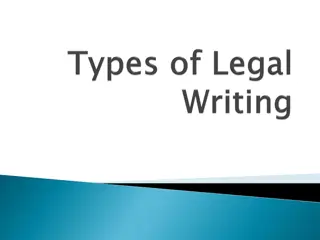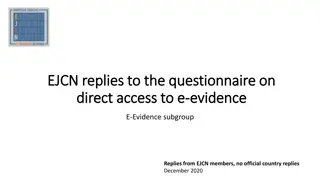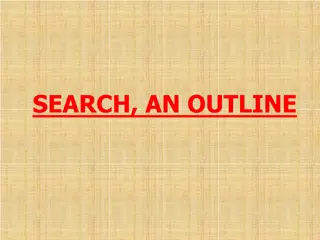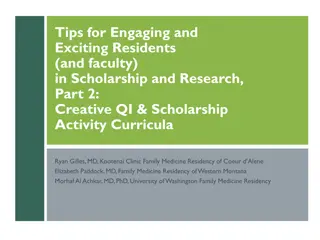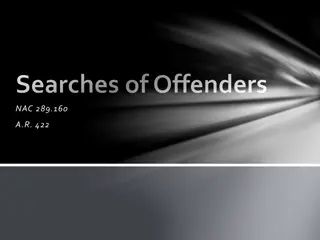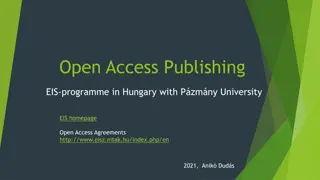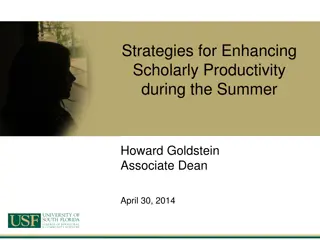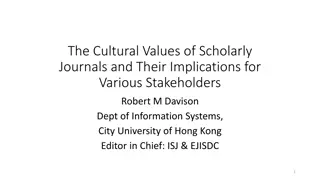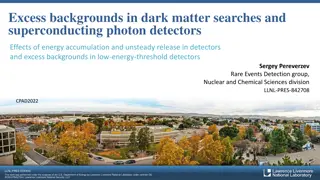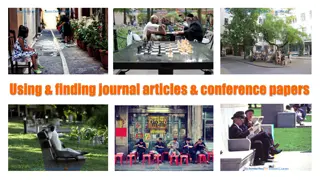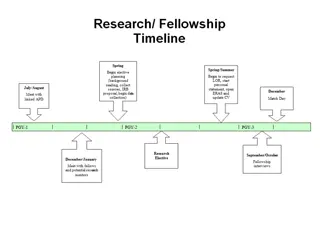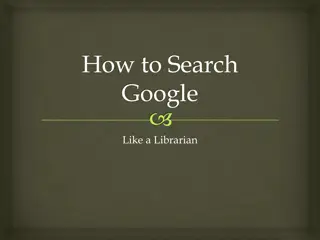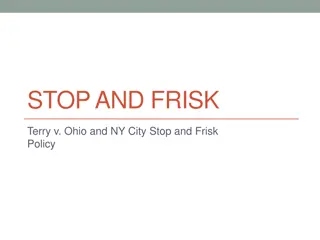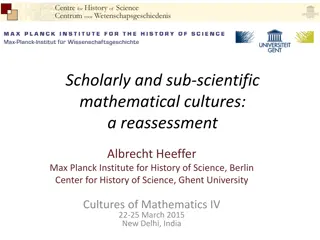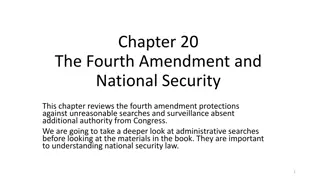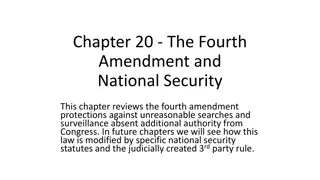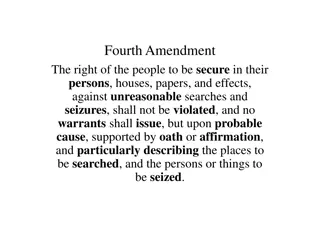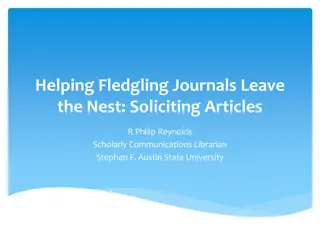Effective Strategies for Literature Searches and Re-Use of Scholarly Literature
Conducting literature searches involves surveying existing publications and information on a specific topic. Different search strategies, from simple searches to systematic queries and snowballing, are utilized based on research needs. Learning objectives include building search strategies, using advanced search techniques, and locating relevant information resources for effective literature searches.
Download Presentation

Please find below an Image/Link to download the presentation.
The content on the website is provided AS IS for your information and personal use only. It may not be sold, licensed, or shared on other websites without obtaining consent from the author.If you encounter any issues during the download, it is possible that the publisher has removed the file from their server.
You are allowed to download the files provided on this website for personal or commercial use, subject to the condition that they are used lawfully. All files are the property of their respective owners.
The content on the website is provided AS IS for your information and personal use only. It may not be sold, licensed, or shared on other websites without obtaining consent from the author.
E N D
Presentation Transcript
DISCOVERY AND RE-USE OF SCHOLARLY LITERATURE USING INFORMATION RESOURCES Research4Life is a public-private partnership of five programmes:
Outline Literature search Search strategies Refining a search Search filters Boolean operators Parentheses and wildcards Search limits Summary v1.1 November 2020 This work is licensed under Creative Commons Attribution-ShareAlike 4.0 International (CC BY-SA 4.0)
Learning objectives Build a search strategy. Use the advanced search techniques for the most relevant search results. Locate the best information resources for an effective literature search.
What is a literature search? A literature search involves finding out what other work has already been done in the field in which you focus. It involves survey of publications and information on a specific topic. There are various search strategies for carrying out a literature search, mainly depends on the stage of your research
1. 1. Simple search - basic search This is a quick and first step search for online resources. Usually done through Google Scholar, university library s catalogue or Wikipedia . One can search by typing in a single search term or phrase One can also search by typing part of bibliographic record e.g. title or journal name into the search engines to get the full bibliographic information.
1. 2. Systematic search - building a query Requires a more comprehensive search strategy. Usually done for a complex piece of research which aims to identify, select and synthesize all research published on a particular question or topic. A systematic research consists of identifying search items, using boolean operators, advanced search techniques and building a query.
3. Following a thread - snowballing Snowballing involves using a key publications on your subject as a starting point. related publication related publication The references listed in your relevant publications lead you to other relevant publications. related publication Key publication related publication related publication related publication The snowball method helps to find a lot of literature about a subject quickly and easily.
What you should do! Collect background information in order to get an overview on the topic. An encyclopedia provides a good start. Newspapers & professional journals are useful for familiarizing yourself with current developments and opinions. Books & review articles provide an introduction and overview of various aspects of the topic. Narrow your focus. Turn your research focus into a question The 4W+H questions are a great way to start:What ? Where? Who? Why? How?
The 4W+H questions The given example topic is environmental issues and agriculture Source: https://library.wur.nl/infoboard/module_2/page14872.html
Developing a search strategy: Process overview Source: https://www.who.int/hinari/training/Basic_Course/en/ Accessed April 6th, 2020
Refining a search o Think critically and judge what information is relevant and appropriate for your purpose. There is no such thing as the perfect search o A filter enables you to refine your search criteria further, by adding some additional search criteria. o A filter can be applied before running a search or it can be used to refine search results after the initial search has been executed.
Search filters Search filters are used to evaluate & improve search queries appropriate information is retrieved. A simple search retrieves thousands of records, try different search strategies to get pertinent results. E.g. A search on a broad topic such as globalization or organisational behaviour , will receive too many results. Use a connected string words to retrieve a more manageable list. Repeat the process to find the best match. Remember that all search strategies do not function the same way in all databases
Boolean operators Boolean search operators (AND, OR, NOT) connect terms and locate records containing matching terms. They strengthen the relevancy ranking in your search results. Booleans Operators can allow you to either narrow, broaden or exclude search results. AND operator is used to combine two or more concepts and narrows a search. OR operator is used to contain one or other terms and broadens a search. NOT operator is used to exclude one or other terms and narrows a search.
Parentheses and wildcards Phrase or proximity searching or ( ) allows you to search for an exact phrase crop plantation and (soil condition) These help to narrow your results and make your search more specific. Truncation/wildcards * or $ allow you to search for alternative spellings child* for child OR childs OR children parasite* for parasite OR parasites Alternate spellings ? can be used to substitute for characters anywhere in a word wom?n would search for woman and women
Search limits Most databases & search platforms allow you to limit a search by author, title, journal, date, and language etc You can use an advance search and refine your options on a search platform. Drop down menus are available.
Summary This lesson focused on building search queries and the use of advanced search techniques to conduct an effective literature search.
References and useful resources Cooper, C., Booth, A., Varley-Campbell, J., Britten, N. & Garside, R. 2018. Defining the process to literature searching in systematic reviews: a literature review of guidance and supporting studies. BMC Medical Research Methodology, 18(1): 85. https://doi.org/10.1186/s12874-018-0545-3 ISU. 2019. Refine your search. In: International Space University Library [online]. [Cited 2 October 2020]. https://isulibrary.isunet.edu/index.php?lvl=cmspage&pageid=4&id_article=955 Smith, C. 2020. Oxford LibGuides: Systematic Reviews and Evidence Syntheses: Home [online]. [Cited 2 October 2020]. https://ox.libguides.com/systematic-reviews/home University of Leeds Library. 2020. Literature searching explained. In: University of Leeds [online]. [Cited 2 October 2020]. https://library.leeds.ac.uk/info/1404/literature_searching/14/literature_searching_explained/5 WUR. 2016. Searching for literature. In: Wageningen University & Research Library [online]. [Cited 2 October 2020]. https://www.wur.nl/en/Library/Students/Searching-for-literature.htm WUR. 2019. E-learning modules. In: Wageningen University & Research Library [online]. [Cited 2 October 2020]. https://www.wur.nl/en/Library/Students/e-learning-modules.htm WUR. 2020. The 4 W s. In: Wageningen University & Research Library [online]. [Cited 4 October 2020]. https://library.wur.nl/infoboard/module_2/page14872.html WHO. 2019. Hinari Basic Course. In: WHO [online]. [Cited 2 October 2020]. http://www.who.int/hinari/training/Basic_Course/en/
You are invited to; Visit us at www.research4life.org Contact us at r4l@research4life.org Find out about other training materials [www.research4life.org/training] Subscribe to Research4Life newsletter [www.research4life.org/newsletter] Check out Research4Life videos [https://bit.ly/2w3CU5C] Follow us on Twitter @r4lpartnership and Facebook @R4Lpartnership
For more information on Research4Life www.research4life.org r4l@research4life.org Research4Life is a public-private partnership of five programmes:
